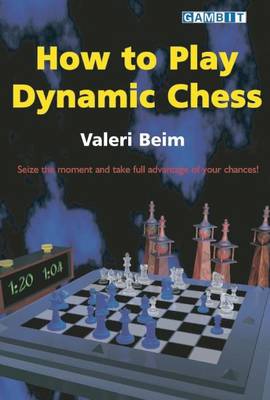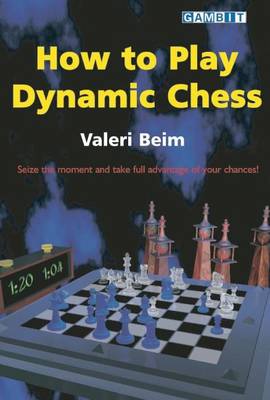
- Afhalen na 1 uur in een winkel met voorraad
- Gratis thuislevering in België vanaf € 30
- Ruim aanbod met 7 miljoen producten
- Afhalen na 1 uur in een winkel met voorraad
- Gratis thuislevering in België vanaf € 30
- Ruim aanbod met 7 miljoen producten
Zoeken
Omschrijving
Chess is fundamentally a dynamic game. Each move changes the situation and the possibilities for both sides. No piece is ever identically as valuable as any other, and their scope changes from move to move. The current generation of supergrandmasters plays unrelentingly dynamic chess, but a great deal of chess literature still deals with chess as if it were a predominantly static game. Much traditional chess teaching is based around rules of thumb that might work well 'on average' or in 'typical' situations, but these rules may not equip players for the specific and sometimes exceptional situations that they face in their games. In this book, Valeri Beim explains how to factor in dynamic considerations, and weigh initiative and time against material and other static factors. Topics include: dynamics, development, the king as a target, breakthrough, and the initiative.
Specificaties
Betrokkenen
- Auteur(s):
- Vertaler(s):
- Uitgeverij:
Inhoud
- Aantal bladzijden:
- 175
- Taal:
- Engels
Eigenschappen
- Productcode (EAN):
- 9781904600152
- Verschijningsdatum:
- 1/10/2004
- Uitvoering:
- Paperback
- Formaat:
- Trade paperback (VS)
- Afmetingen:
- 173 mm x 249 mm
- Gewicht:
- 326 g

Alleen bij Standaard Boekhandel
+ 26 punten op je klantenkaart van Standaard Boekhandel
Beoordelingen
We publiceren alleen reviews die voldoen aan de voorwaarden voor reviews. Bekijk onze voorwaarden voor reviews.











